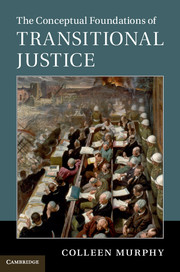Book contents
- The Conceptual Foundations of Transitional Justice
- The Conceptual Foundations of Transitional Justice
- Copyright page
- Contents
- Preface and Acknowledgments
- Introduction
- Chapter 1 Circumstances of Transitional Justice
- Chapter 2 The Problem of Transitional Justice
- Chapter 3 Societal Transformation
- Chapter 4 The Just Pursuit of Transformation
- Conclusion
- Works Cited
- Index
- References
Works Cited
Published online by Cambridge University Press: 01 June 2017
- The Conceptual Foundations of Transitional Justice
- The Conceptual Foundations of Transitional Justice
- Copyright page
- Contents
- Preface and Acknowledgments
- Introduction
- Chapter 1 Circumstances of Transitional Justice
- Chapter 2 The Problem of Transitional Justice
- Chapter 3 Societal Transformation
- Chapter 4 The Just Pursuit of Transformation
- Conclusion
- Works Cited
- Index
- References
- Type
- Chapter
- Information
- The Conceptual Foundations of Transitional Justice , pp. 202 - 217Publisher: Cambridge University PressPrint publication year: 2017



